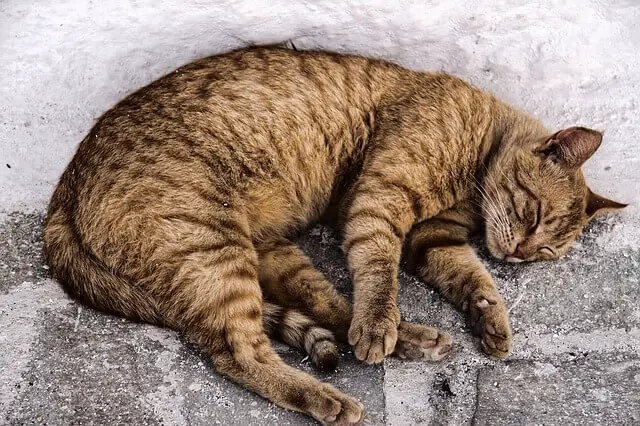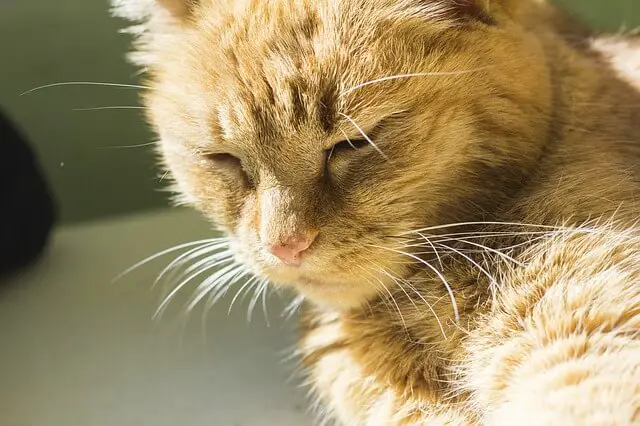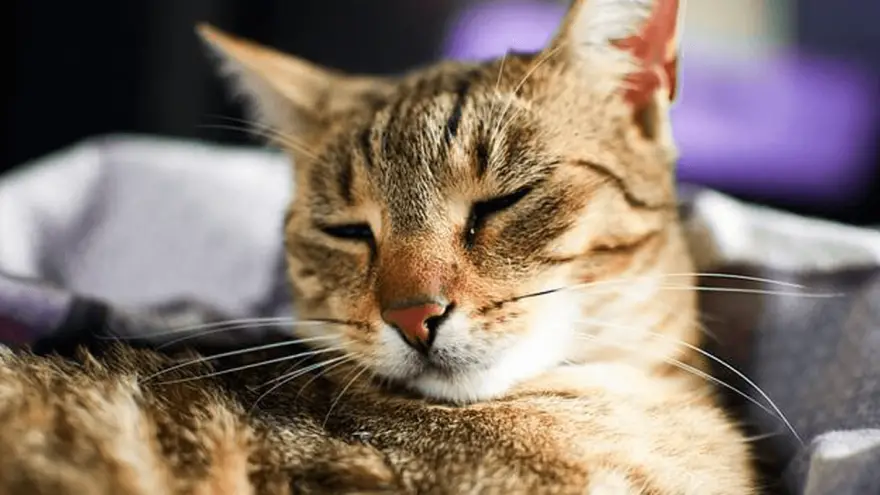What Does Blood in Cat Urine Mean? Should I Be Worried?
21.03.2022.
If you've ever seen your cat pee blood, you know how frightening it can be. While it's not something anyone wants to see, blood in cat urine is actually quite common. Hematuria, or the presence of blood in the urine, can be caused by urinary tract abnormalities or disease processes elsewhere in the body that affect the urinary tract or kidneys.
What exactly is hematuria?
Hematuria is the medical term vets use to describe blood in the urine. You may notice orange or red-tinged urine or blood clots if this occurs. The urine may appear normal in some cases, and the bleeding may be microscopic. Blood will be detected in these cases through diagnostics and laboratory analysis.
Symptoms associated with hematuria
Some of the symptoms you may notice in addition to a change in the color of your cat's urine, according to veterinarians, include:
- Bleeding from unusual places, such as the nose, gums, eyes, ears, or rectum, as well as bloody vomit or feces
- Skin bruising in the form of visible bruises or small dots
- Going in and out of the litter box on a regular basis
- Inability to urinate at all
- Increased drinking and urination
- Unsuccessful attempts to urinate
- Urinary accidents that occur outside of the litter box
- Vocalizing while urinating

RELATED: Pancreatitis in Cats: Causes, Symptoms & Treatment
Possible causes of blood in cat urine
Take a deep breath if reading these signs has made you nervous. Some of these symptoms are only seen with rare diseases, which is not usually why your cat has blood in its urine. Most cases of hematuria in cats are caused by urinary illness. Your veterinarian is the best person to help you determine what and where the source of the illness is. Here are the three most common causes of blood in cats' urine:
Urinary tract infections
Blood-tinged urine can indicate a bacterial urinary tract infection in older cats with impaired kidney function. Because their urine is so concentrated that bacterial growth cannot occur, young cats with healthy kidneys almost never get urinary tract infections. Urinary tract infection in older cats with more dilute urine can be limited to the bladder or, in more severe cases, can involve one or both kidneys.
When a cat has a kidney infection, they will frequently lose weight and have a poor appetite. Visible blood in the urine indicates that the infection has been present for a longer period of time, as an early, mild infection only shows the presence of red blood cells when the urine is examined under a microscope. Other symptoms of a urinary tract infection include excessive thirst, frequent urination, and straining to urinate.
RELATED: Hyperthyroidism in Cats: Causes, Symptoms & Treatment
Crystals in urine
The presence of crystals in urine is a common cause of bloody urine in younger cats (crystalluria). When left undiagnosed and untreated, these crystals can cause urethral blockage in some male cats. Because they are unable to urinate due to a blocked urethra, they experience a medical emergency, which can result in kidney failure and death within 48 to 72 hours.
Mineral crystals in the urine (typically calcium oxalate or struvite) can cause stone formation in female cats and some male cats, but not urethral blockage. These stones can be found in the kidneys, ureters (the tubes that connect the kidneys to the bladder), or the bladder itself. Stones not only cause blood in the urine, but they can also lead to chronic or recurring urinary tract infections. If a stone blocks a ureter, the kidney "upstream" may be lost.

Fortunately, ureteral stones are uncommon. Crystalluria and stones are treated with special diets and, in the case of calcium oxalate stones, surgery to remove them because they cannot be dissolved with struvite dissolving diets.
RELATED: Most Common Internal Parasites in Cats
Interstitial cystitis
Interstitial cystitis is the third and most common cause of bloody urine in cats. We are only beginning to comprehend this complex and frequently frustrating disease, which appears to be the most common cause of recurrent blood in a cat's urine. In addition to blood-tinged urine, increased urination frequency and straining to urinate may be observed.
Using urine analysis, urine culture, and abdominal radiographs (x-rays) or ultrasound, this disease is diagnosed by ruling out crystalluria, urinary tract stones, and urinary tract infection. It is managed through dietary changes, such as increasing canned food to increase the cat's hydration and, as a result, decrease the concentration of the urine.
Diagnosis
You must provide a detailed medical history of your cat's health, including a history of symptoms and any incidents that may have precipitated this condition. Your veterinarian may be able to determine which organs are causing secondary symptoms based on the history you provide.
Your veterinarian will conduct a thorough physical exam on your cat, as well as a complete blood profile, which includes a chemical blood profile, a complete blood count, and a urinalysis. Examining an ejaculate sample in male cats can aid in the diagnosis of prostatic disease.
RELATED: How Long Do Cats Live? Can I Prolong My Cat's Life?
Other causes of discolored urine will be considered as differential diagnoses for blood-tinged urine. The most common urine reagent strip blood tests detect red blood cells, hemoglobin, or protein. Diet will also be taken into account. If you are supplementing your cat's diet with vitamins or anything other than a regular kibble diet, you must notify your veterinarian, as high doses of vitamin C (ascorbic aid) may result in false-negative reagent test strip results.

Ultrasonography, radiography, and contrast radiography may all be used to help make a diagnosis. If any mass lesions are found, a biopsy may be required to make a definitive diagnosis. Neoplasia and lower urinary tract issues can be ruled out with a vaginoscopy in female cats or a cystoscopy in male cats.
Treatment
The treatment of hematuria will be determined by the primary or associated diseases that are the root cause of the condition. Urinary tract infection may be associated with another urinary tract disease, such as cancer or urinary tract stones (urolithiasis). Alternatively, hematuria may be caused by a condition that affects the entire body, such as an excess of steroids produced by the adrenal glands or diabetes. Before the hematuria can be resolved, a generalized systemic condition must be treated.
RELATED: How Often Should I Take My Cat to the Vet?
Urinary tract stones, neoplasia, and traumatic urinary tract injuries may necessitate surgery. If your cat has a severely low red blood cell count, blood transfusions may be required. Dehydration will be treated with fluids, and urinary tract infections and generalized diseases caused by bacteria in the blood will be treated with antibiotics. Urolithiasis and kidney failure may necessitate dietary changes to avoid relapse.
If your cat has a clotting disorder, the blood thinner Heparin may be used to help control it.
World Cat Finder Team







Share